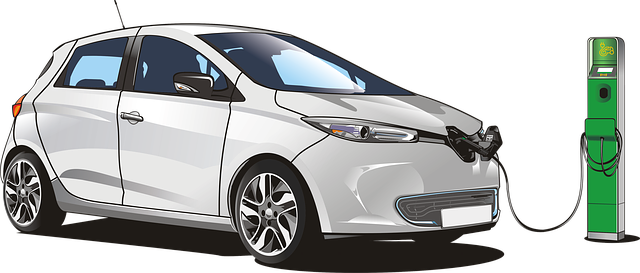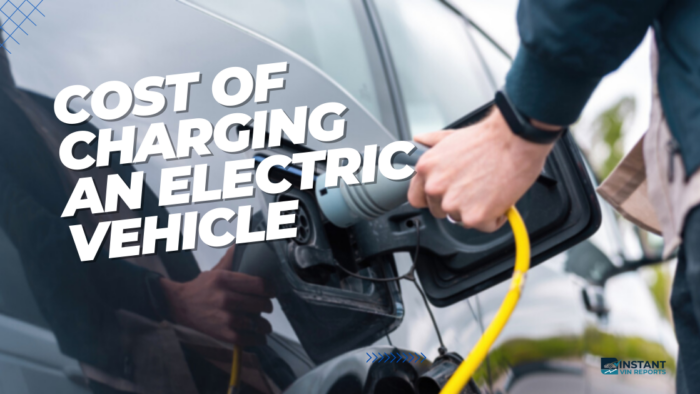Electric vehicles (EVs) are becoming increasingly popular as more and more nations look for ways to reduce their carbon footprint in line with the Paris agreement and save on fuel costs. One of the main questions that potential EV buyers often have is: “What is the cost of charging an electric vehicle?” Well, to charge your electric vehicle you would pay between $10 to $15.
With as little as $10 you can charge your electric vehicle but this answer depends on a number of factors, such as the size of the battery, the type of charging equipment being used, and the cost of electricity in your area. In this article, we’ll take a closer look at these factors and provide an overview of the costs associated with charging an electric vehicle.
How Much Does It Cost To Charge an Electric Car
As a general rule, it will cost less to charge an EV than it would to fuel a gasoline-powered car, as electricity is generally cheaper than gasoline. However, the exact cost will depend on how much you drive and how you charge your EV.
On average, it costs around $10 to $15 to charge an EV with a range of around 200 miles. However, this can vary depending on the size of the battery and the specific charging equipment you use. For example, charging an EV with a larger battery or using a faster charging station may cost more.
To get a more accurate estimate of the cost of charging your EV on a regular basis, you can use an online calculator that takes into account your specific driving habits and the cost of electricity in your area. This can help you get a better idea of what to expect when it comes to charging costs for your EV.
Overall it takes an average of $10 to $15, although the cost may vary from country to country to charge an electric vehicle. There are some other factors that determine the cost of charging an electric vehicle. Let’s take a look at some of these costs now.
READ ALSO: The Aston Martin VIN Check (Explained for beginners)

Factors Affecting The Electric Vehicle Charging Cost
There are several factors that can impact the cost of charging an electric vehicle (EV):
Size of the battery
The size of the battery in the EV can have a significant impact on the cost of charging. Larger batteries will generally take longer to charge and will therefore cost more to charge.
Type of charging equipment
The type of charging equipment you use can also affect the cost of charging. For example, using a fast charging station will typically be more expensive than using a slower Level 2 charger.
Price of electricity
The cost of electricity can vary significantly depending on your location and the time of day you charge your EV. In general, electricity is cheaper at off-peak times, such as overnight, so charging your EV during these times may be less expensive.
Frequency of charging
The more often you charge your EV, the more it will cost. This is because the battery will be charged from a lower state of charge each time, which requires more energy. If you charge your battery more often, it may degrade more quickly, which could result in higher maintenance and replacement costs over time.
Driving habits
Your driving habits can also affect the cost of charging your EV. For example, if you frequently drive long distances, you may need to charge your EV more often, which will increase the cost.
EV model
Different EV models have different battery sizes and charging capabilities, which can impact the cost of charging. For example, an EV with a larger battery or faster charging capabilities may cost more to charge than an EV with a smaller battery and slower charging capabilities.
Ever wondered about charging speed? What factors affect the charging speed of an electric vehicle?
Factors Affecting the Charging Speed of Electric Vehicles
There are several factors that can affect the charging speed of an electric vehicle (EV):
Charging equipment
The type of charging equipment you use can have a significant impact on the charging speed of your EV. For example, using a fast charger or a charger with a higher power output will typically result in faster charging times.
Battery size
The size of the battery in your EV can also affect the charging speed. Larger batteries will typically take longer to charge than smaller batteries.
Battery condition
The condition of the battery in your EV can also affect the charging speed. A battery that is in good condition will typically charge faster than a battery that is older or has been damaged in some way.
Ambient temperature
The ambient temperature can also affect the charging speed of your EV. In general, charging an EV in a cold environment will be slower than charging it in a warm environment.
Charging rate
The charging rate of your EV, which is the rate at which the battery is charged, can also affect the charging speed. Some EVs are able to charge at higher rates, which can result in faster charging times.
By understanding these factors, you can get a better idea of what to expect when it comes to the charging speed of your EV.
If you are interested in getting a faster charging speed on your current vehicle, or simply just looking forward to getting one, a used electric SUV for example, do not forget to generate a vehicle history report that gives the history of the electric vehicle, or generate a window sticker from our site.
With a window sticker, you get access to the set car prices, you can look up the packages that come with the vehicle, safety ratings, security, interior, and exterior packages, and of course, lots more. Just navigate to our window sticker page here and grab yourself a window sticker for your vehicle.
Let’s answer some frequently asked questions now in the next section.
READ ALSO: How to lookup Florida custom license plate
Frequently Asked Questions
There are some questions that you may have been asking about charging electric cars. In this section, we’ll have a look and answer them all.
How much electricity is needed to recharge an electric car?
The quantity of electricity needed to recharge an electric car depends on so many factors such as the size of the battery and others. As a general rule, it takes about 8 to 16 kilowatt-hours (kWh) of electricity to fully charge an electric car with a 100-mile range using a standard 110-volt outlet. However, this can vary depending on the specific car and the charging rate. For example, a car with a larger battery or a higher charging rate may require more electricity to charge.
Using a faster charging station or a charger with a higher power output can significantly reduce the charging time and the amount of electricity needed. For example, using a Level 3 charger, which is also known as a DC fast charger, can recharge an electric car with a 100-mile range in as little as 30 minutes and may require only about 4 to 6 kWh of electricity.
How long does a charge last on an electric car?
An electric car with a 100-mile range will last for about 100 miles on a single charge. However, this can vary depending on the specific car and how it is driven. For example, driving at higher speeds or in stop-and-go traffic can decrease the range of an electric car, while driving at a steady pace and using energy-saving features like regenerative braking can increase the range.
Some electric cars have larger batteries and are able to go further on a single charge. For example, an electric car with a 300-mile range may be able to last for up to 300 miles on a single charge. If you are unsure of the specifications of your electric vehicle, you can generate a window sticker with our window sticker tool.
Can you charge an electric car while it is running?
It is generally not possible to charge an electric car while it is running. Electric cars are typically charged by plugging them into a charging station or outlet, which supplies electricity to the battery. That is practically how it is done. To charge an electric car, you will need to plug it into a charging station or outlet using the appropriate charging cable. The car’s battery will then be charged using the electricity from the charging station or outlet.
Keep in mind that it is not safe to charge an electric car while it is running or while the engine is on. You should always make sure the car is turned off and the charging process is complete before starting the car.
What Powers Electric Car Charging Stations?
Electric car charging stations are powered by electricity, which is typically supplied by the electric grid. Charging stations can be connected to the grid in a variety of ways, depending on the specific station and the location. In some cases, charging stations may be connected directly to the grid through a dedicated electrical circuit. This allows the station to draw as much electricity as it needs to charge the car.
In other cases, charging stations may be connected to the grid through a shared electrical circuit, such as a circuit shared with other buildings or devices. In these cases, the charging station may have a limited amount of electricity available and may not be able to charge the car as quickly.
Some charging stations may also be equipped with on-site energy storage, such as a battery or a fuel cell, which can be used to store electricity and charge the car when the grid is not available.
Generally, electric car charging stations are designed to provide a convenient and reliable way to charge electric cars using electricity from the grid.
READ ALSO: How to Perform a Tesla Window Sticker Lookup
How do you pay for charging an electric car?
Charging electric vehicles is one thing. Paying for the service rendered is another. Paying for an electric car charge is not so difficult as it depends on what payment options are available at the charging station you frequent. There are several ways you can pay for charging an electric car:
Credit or debit card:
Many charging stations accept credit or debit cards as a form of payment. Simply swipe or insert your card into the charging station and follow the prompts to complete the payment.
Mobile app:
Some charging stations offer a mobile app that you can use to pay for charging. Simply download the app, create an account, and link your payment method. You can then use the app to start and stop charging and pay for the electricity as you go.
Subscription service:
Some charging networks offer a subscription service that allows you to pay a monthly fee in exchange for unlimited charging at their stations. This can be a convenient option if you use the charging network frequently.
Charging network account:
Some charging networks offer the option to create an account with them and link a payment method. You can then use your account to pay for charging at their stations.
RFID card: Some charging networks offer RFID (radio-frequency identification) cards that you can use to pay for charging at their stations. Simply tap the card on the charging station to start and stop charging and pay for the electricity as you go.
In conclusion, charging an electric vehicle (EV) is an important aspect of EV ownership that requires careful consideration. The frequency of charging, the type of charging equipment used, and the cost of electricity can all affect the cost of charging an EV. By taking the time to understand these factors and making informed decisions about how and when to charge your EV, you can minimize the cost of charging and get the most out of your electric vehicle. Additionally, by considering the environmental impacts of your charging habits, you can help to reduce your carbon footprint and contribute to a more sustainable future.










